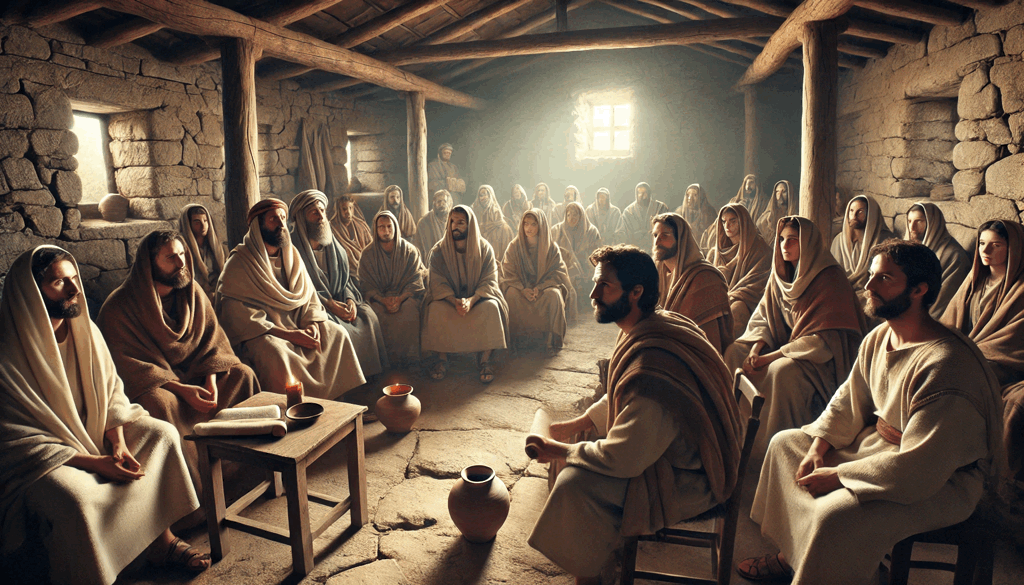In 1 Corinthians 11, the Apostle Paul addresses the Corinthians with teachings that transcend time, offering profound insights on respect, order, and unity within worship. This chapter tackles cultural customs, their deeper significance, and their application in modern Christian life. From the symbolic meaning of head coverings to the sanctity of the Lord’s Supper, Paul challenges believers to consider how their actions reflect their relationship with God and others. In this article, we’ll explore the key themes and their relevance to our lives today.
Cultural Practices and Their Deeper Meaning
Head Coverings and Symbolism
Paul’s discussion on head coverings is a response to cultural norms of his time. Women covering their heads symbolized respect, modesty, and alignment with societal expectations. Conversely, uncovered hair could signify independence or, in some cases, a lack of moral standing.
However, Paul emphasizes that the deeper message lies not in the practice itself but in what it represents—respect, humility, and acknowledgment of God’s order. The cultural context has shifted, but the principle remains relevant: our outward actions should reflect inner respect for God and others.
In today’s terms, this could mean dressing appropriately for occasions of worship or showing respect through culturally significant behaviors, such as punctuality or attentive listening. The essence lies in the heart’s attitude rather than rigid adherence to outdated customs.
Respect as a Cornerstone of Worship
Respect threads through Paul’s teachings as a foundational virtue. He argues that relationships should reflect mutual honor—Christ respects God the Father, husbands respect wives, and wives respect husbands. This hierarchy isn’t about superiority but about harmony and interconnectedness.
Paul’s metaphor of the head as the “source” rather than a position of dominance reminds us that mutual dependence defines human relationships. It challenges modern Christians to reject interpretations of scripture that foster inequality while embracing the call to love, kindness, and unity.
For example, in a family or church setting, this teaching encourages dialogue and shared decision-making rather than unilateral control.
Order and Unity in the Lord’s Supper
Paul transitions to the topic of the Lord’s Supper, addressing chaos within the Corinthian church. Instead of unity, the practice had devolved into self-serving behavior. Some feasted while others went hungry, betraying the communal spirit of communion.
Paul’s reprimand calls Christians to reflect on their hearts before partaking in the Eucharist. Communion is a sacred act of remembrance and unity, meant to bridge divisions and celebrate Christ’s sacrifice.
Today, this lesson challenges us to approach worship and fellowship with humility and consideration for others. Are we inclusive? Do we prioritize communal harmony over personal preferences? These questions push us toward self-examination and collective growth.
Key Takeaways
- Cultural Practices Reflect Deeper Truths
While cultural norms vary, the principle of expressing respect through culturally appropriate actions remains. - Respect Builds Harmony
Relationships thrive on mutual respect, reflecting the interconnectedness that Paul describes. - Worship Calls for Unity
Communion and other acts of worship should bring believers together, highlighting shared faith rather than personal divisions. - Self-Examination Precedes Worship and Communion
Approaching worship with humility ensures that our focus remains on Christ and our community, not personal pride.
Conclusion
1 Corinthians 11 invites us to examine how our behaviors—shaped by culture and faith—demonstrate respect and unity. Paul’s words remind us that customs are temporary, but their underlying truths are eternal. As modern Christians, we are called to embody humility, love, and reverence in all aspects of our lives, ensuring our worship and relationships honor God and reflect His grace.
By embracing these lessons, we align our lives more closely with Christ’s example, fostering harmony within ourselves, our families, and our communities. Let’s take these teachings to heart, showing respect in ways that matter and celebrating the unity we share in Christ.

